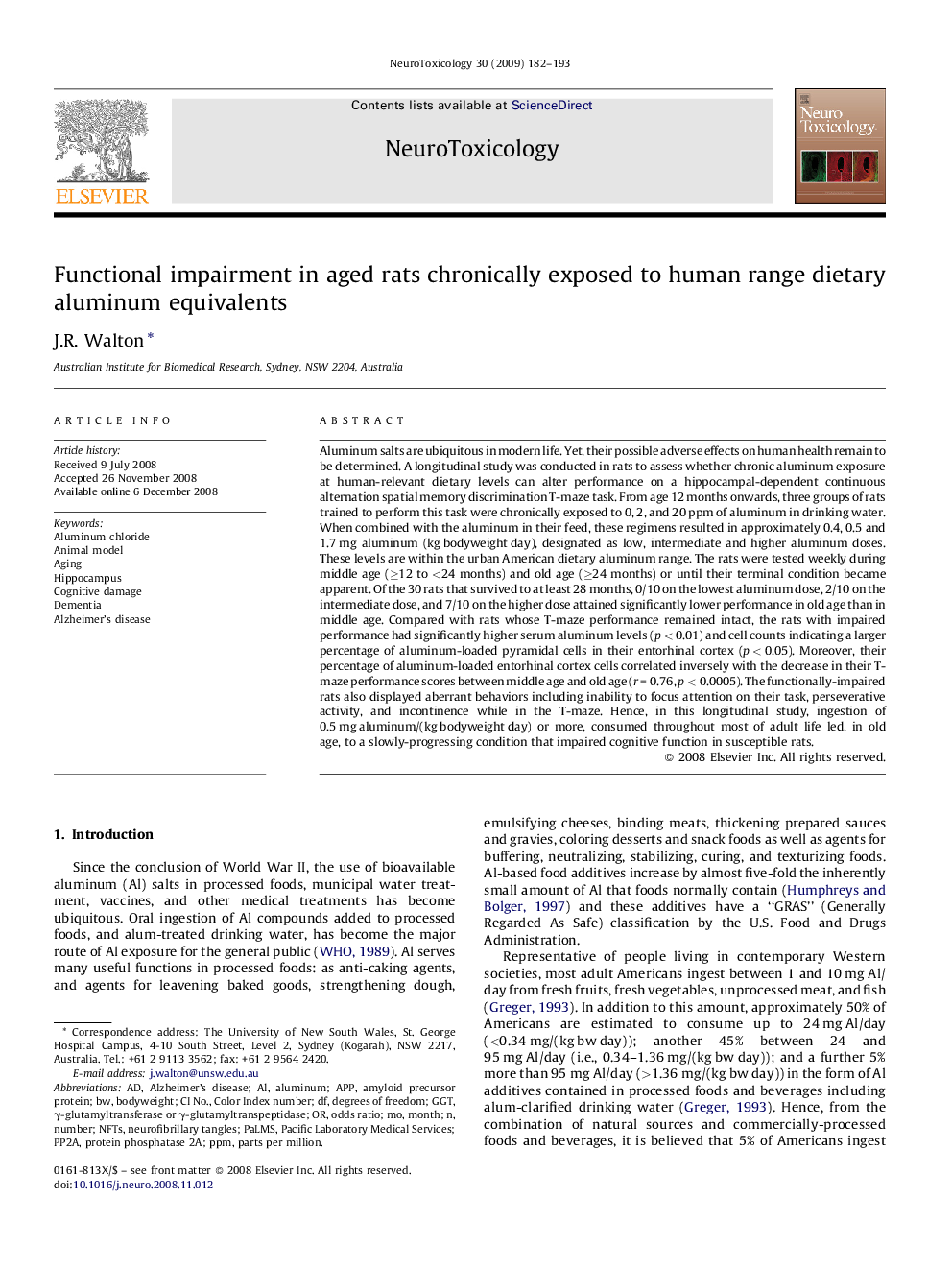| کد مقاله | کد نشریه | سال انتشار | مقاله انگلیسی | نسخه تمام متن |
|---|---|---|---|---|
| 2590234 | 1131730 | 2009 | 12 صفحه PDF | دانلود رایگان |

Aluminum salts are ubiquitous in modern life. Yet, their possible adverse effects on human health remain to be determined. A longitudinal study was conducted in rats to assess whether chronic aluminum exposure at human-relevant dietary levels can alter performance on a hippocampal-dependent continuous alternation spatial memory discrimination T-maze task. From age 12 months onwards, three groups of rats trained to perform this task were chronically exposed to 0, 2, and 20 ppm of aluminum in drinking water. When combined with the aluminum in their feed, these regimens resulted in approximately 0.4, 0.5 and 1.7 mg aluminum (kg bodyweight day), designated as low, intermediate and higher aluminum doses. These levels are within the urban American dietary aluminum range. The rats were tested weekly during middle age (≥12 to <24 months) and old age (≥24 months) or until their terminal condition became apparent. Of the 30 rats that survived to at least 28 months, 0/10 on the lowest aluminum dose, 2/10 on the intermediate dose, and 7/10 on the higher dose attained significantly lower performance in old age than in middle age. Compared with rats whose T-maze performance remained intact, the rats with impaired performance had significantly higher serum aluminum levels (p < 0.01) and cell counts indicating a larger percentage of aluminum-loaded pyramidal cells in their entorhinal cortex (p < 0.05). Moreover, their percentage of aluminum-loaded entorhinal cortex cells correlated inversely with the decrease in their T-maze performance scores between middle age and old age (r = 0.76, p < 0.0005). The functionally-impaired rats also displayed aberrant behaviors including inability to focus attention on their task, perseverative activity, and incontinence while in the T-maze. Hence, in this longitudinal study, ingestion of 0.5 mg aluminum/(kg bodyweight day) or more, consumed throughout most of adult life led, in old age, to a slowly-progressing condition that impaired cognitive function in susceptible rats.
Journal: NeuroToxicology - Volume 30, Issue 2, March 2009, Pages 182–193